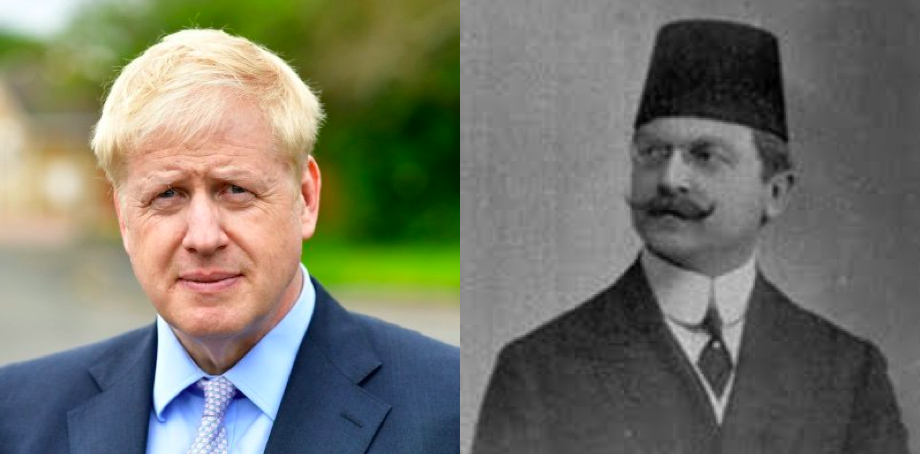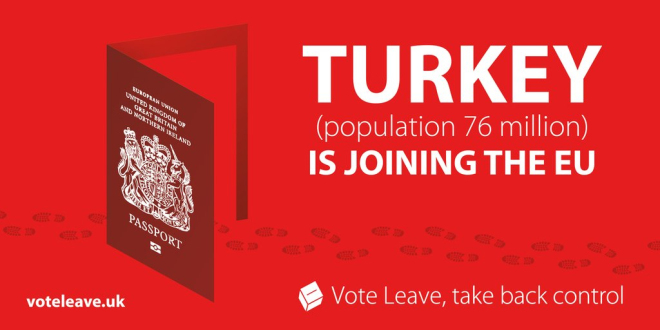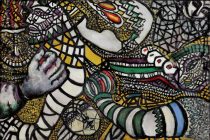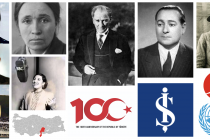Turkey has congratulated Boris Johnson on becoming the new Prime Minister of the UK, with hopes that he will use his Turkish heritage to further strengthen ties between the two countries.
The congratulations were led by President Recep Tayyip Erdoğan, who wrote on Twitter (in Turkish): “I congratulate Boris Johnson [on becoming] the 77th Prime Minister of the United Kingdom and wish him success in his new position.
“I believe that Turkey-UK relations will develop even further in this new era.”
Foreign Affairs Minister Mevlüt Çavuşoğlu wrote: “Wholehearted congratulations to my friend @BorisJohnson new Prime Minister of #UK who has been elected as the leader of the Conservative Party.”
He shared a video with his tweet, taken outside the Ministry of Foreign Affairs in Ankara, where a reporter asks Mr Johnson, who was Foreign Secretary at the time, to confirm that his roots can be traced back to Çankırı, a province to the north-east of the capital.
“No, Kalfat,” Mr Johnson replies, referring to a village in the Çankırı region where his great-great-grandfather Hacı Ahmet Rıza Efendi was born.
Media descended on Kalfat following the announcement of Mr Johnson as the new leader of the UK, where distant relatives spoke of their pride and honour.
“This family has members that can lead the world,” former Kalfat mayor Mustafa Bal was quoted as saying. “This honoured us and made us proud.
“They call his ancestors … the ‘Blond Boys’. Boris Johnson’s blondness comes from this lineage.”
Mr Bal met Mr Johnson in London in 2012, when the latter was the city’s mayor, according to a report by TRT World.
Muhafazakar Parti liderliğine seçilen Birleşik Krallık’ın yeni Başbakanı dostum Boris Johnson’u canıgönülden tebrik ediyorum.
Wholehearted congratulations to my friend @BorisJohnson new Prime Minister of #UK who has been elected as the leader of the Conservative Party. pic.twitter.com/otRMdaPRb8
— Mevlüt Çavuşoğlu (@MevlutCavusoglu) July 23, 2019
Mr Bal claimed that Mr Johnson had credited his re-election to his “Turkish roots” and that he “stood up and beat his chest” during their meeting, telling Mr Bal: “Because of my Turkish identity I won the [London mayoral] election.”
Other villagers interviewed invited Mr Johnson to visit Kalfat and hoped that they could travel to the UK to meet him in London.
Resident Selim Barışkan congratulated Johnson and said locals were “expecting help from him to solve the village’s problems”, reports said.
In 2005 Mr Johnson, then the MP for Henley, visited Turkey to find out more about his family’s history for the BBC programme Who Do You Think You Are?
During the programme he learns that his great-grandfather Ali Kemal, the son of Hacı Ahmet Rıza Efendi, was brutally killed by a lynch mob in 1922.
Ali Kemal, who had a wife called Winifred, was an Interior Minister following the First Word War under the Ottoman government of Damat Ferid Paşa and was against the Turkish War of Independence, which “he was sure would lead Turkey to ruin”.
The show reveals that in June 1919 Ali Kemal had issued a government circular sacking war hero Mustafa Kemal – the man who went on to became Atatürk, the father of modern Turkey.
Ali Kemal was forced to resign from his post as a result of the notorious order, which left him a marked man.
The issue is still one of controversy in Turkey, with historian Ahmet Kuyaş seen telling Johnson during the programme that official Turkish history regards Ali Kemal as a “traitor”.
Boris Johnson’s paternal grandfather Wilfred Johnson – Ali Kemal’s son – was born in Britain on 4 September, 1909. He was originally named Osman Wilfred Kemal.
His mother Winifred died giving birth to him. Ali Kemal’s mother-in-law Margaret Johnson raised Boris Johnson’s grandfather instead.
The BBC revealed how in 1916 Margaret Johnson wrote to the Home Office asking to change her grandson’s surname from Kemal to Johnson.
It is believed she may have wanted to erase any Turkish association with the family because the Ottoman Turks had entered the First World War on Germany’s side, against the British, meaning the young Wilfred could have been a target at school.
Had she not taken this decision, Boris Johnson would have been known today as Boris Kemal.
In a separate BBC programme, entitled Boris Johnson and the Dream of Rome, the politician backed expansion of the European Union by admitting Turkey as a member.
“The crowning irony is those who would keep the Turks out, on the grounds that they are un-European, would thereby disbar the city [Istanbul] that for a thousand years was the heart of the Roman Empire and which preserved our European civilisation,” he said in the 2006 documentary.
“What are we saying if we perpetually keep Turkey out of the European Union just because it’s Muslim?
“First of all, it’s a denial of the huge achievements of men like Kemal Atatürk, who created a secular Westernising country that just happens to be populated by Muslims; it sends out the worst possible signal to moderates in the Islamic world, saying that we can’t incorporate such a country into Europe; and thirdly, are we really saying about ourselves and about Europe that it must be forever conterminous with nothing but Christendom? Well, try going to Bradford and saying that.”
Ten years later Mr Johnson joined the Brexit campaign, which suggested that Turkey was about to join the EU and that “millions” of Turks would migrate to the UK, putting the NHS under pressure.
The Vote Leave side produced a poster that said: “Turkey, population 76 million, is joining the EU. Vote Leave – Take Back Control.”
Other adverts highlighted the disparity in average incomes between Turkey and the UK and Turkey’s borders with Iraq and Syria.
In the days before the Brexit referendum in June 2016, Mr Johnson and fellow Brexit campaigner Michael Gove wrote to the then Prime Minister David Cameron calling on him to “guarantee” that Turkey would never join the EU by using the UK’s veto right.
“If the Government cannot give this guarantee, the public will draw the reasonable conclusion that the only way to avoid having common borders with Turkey is to Vote Leave and take back control on 23 June,” the letter said.
Mr Johnson also spoke about Turkey several times in the lead-up to the Brexit vote.
But following a speech in January this year Mr Johnson, responding to questions from a Channel 4 reporter, denied having ever said anything about Turkey during the EU referendum campaign.
And just months after winning a magazine competition in May 2016 for the “most offensive poem” about President Erdoğan, Mr Johnson had to make his first official visit to Turkey as Foreign Secretary.
There was no discussion of the limerick during the trip, with Johnson instead expressing his support for former Turkish EU Affairs Minister Ömer Çelik’s “vision of a new partnership between Britain and Turkey” based on a “partnership between two Ottoman descendants”.
He added: “We are lucky in the United Kingdom to be one of the biggest recipients of Turkish goods.
“I am certainly the proud possessor of a beautiful, very well-functioning Turkish washing machine like so many other people in my country.”






